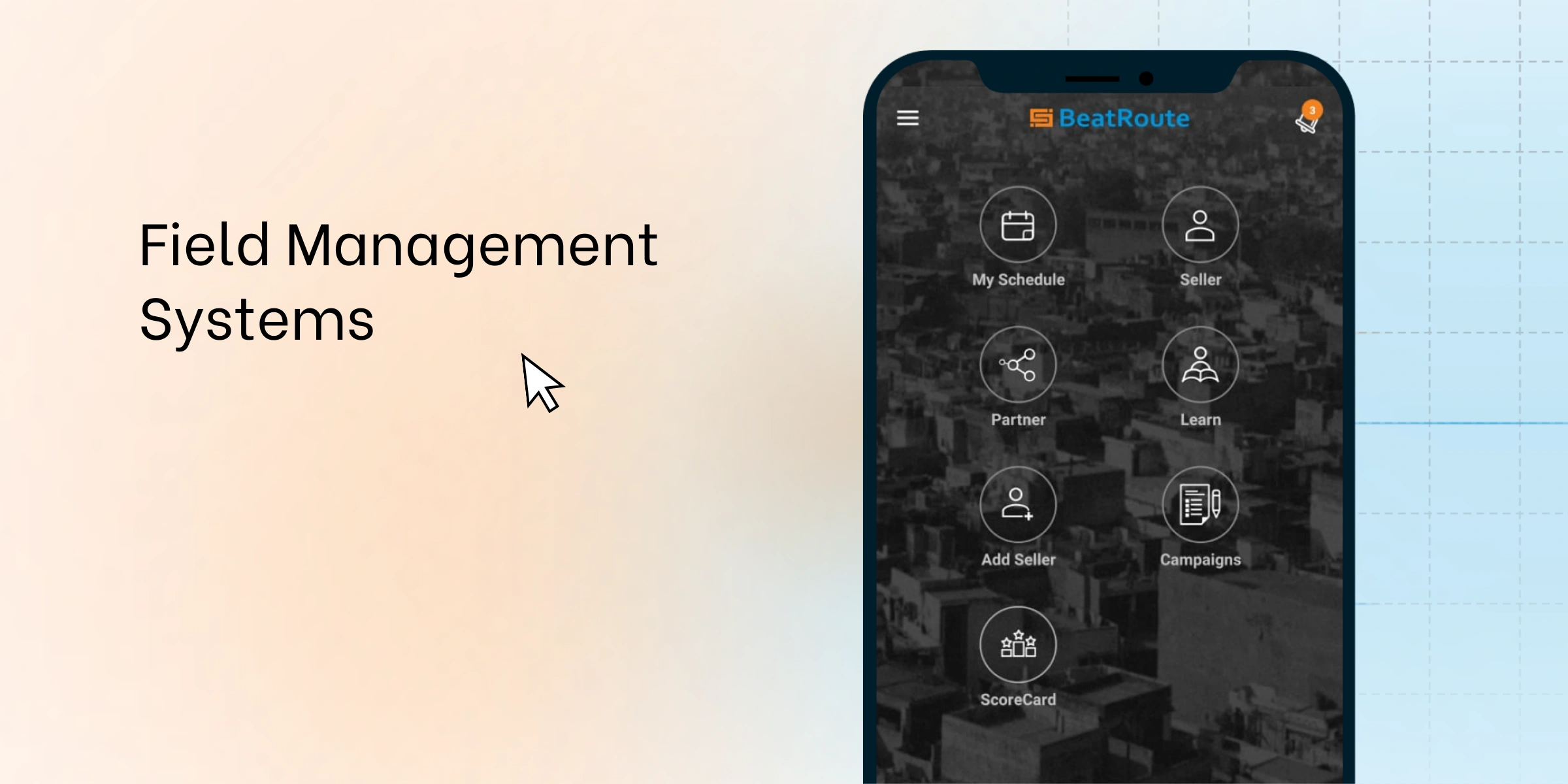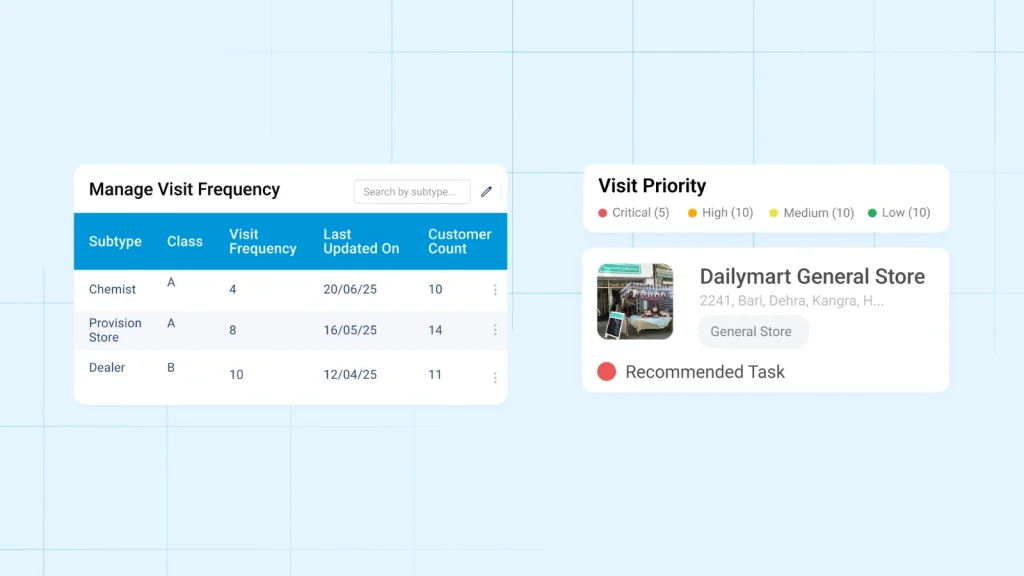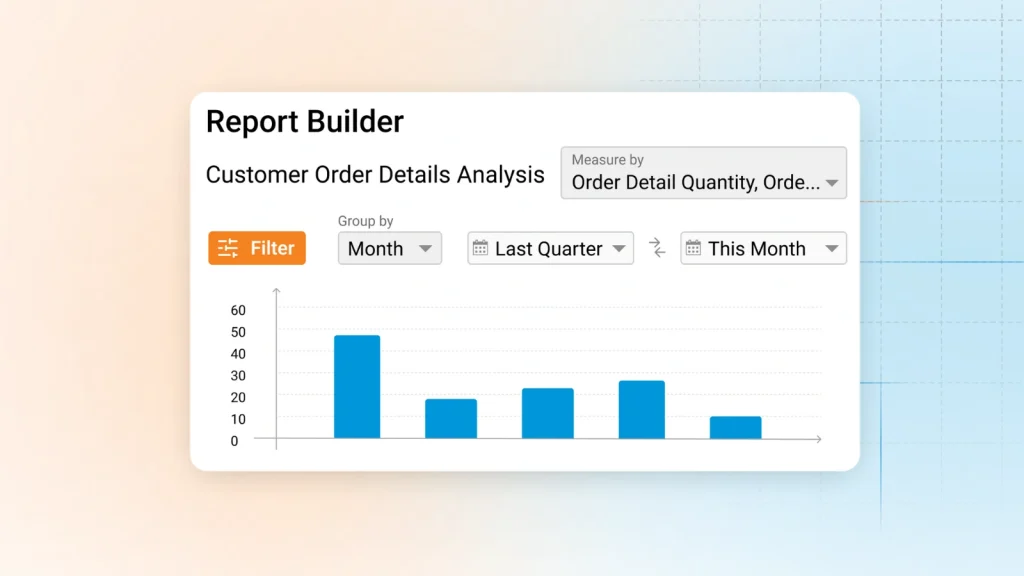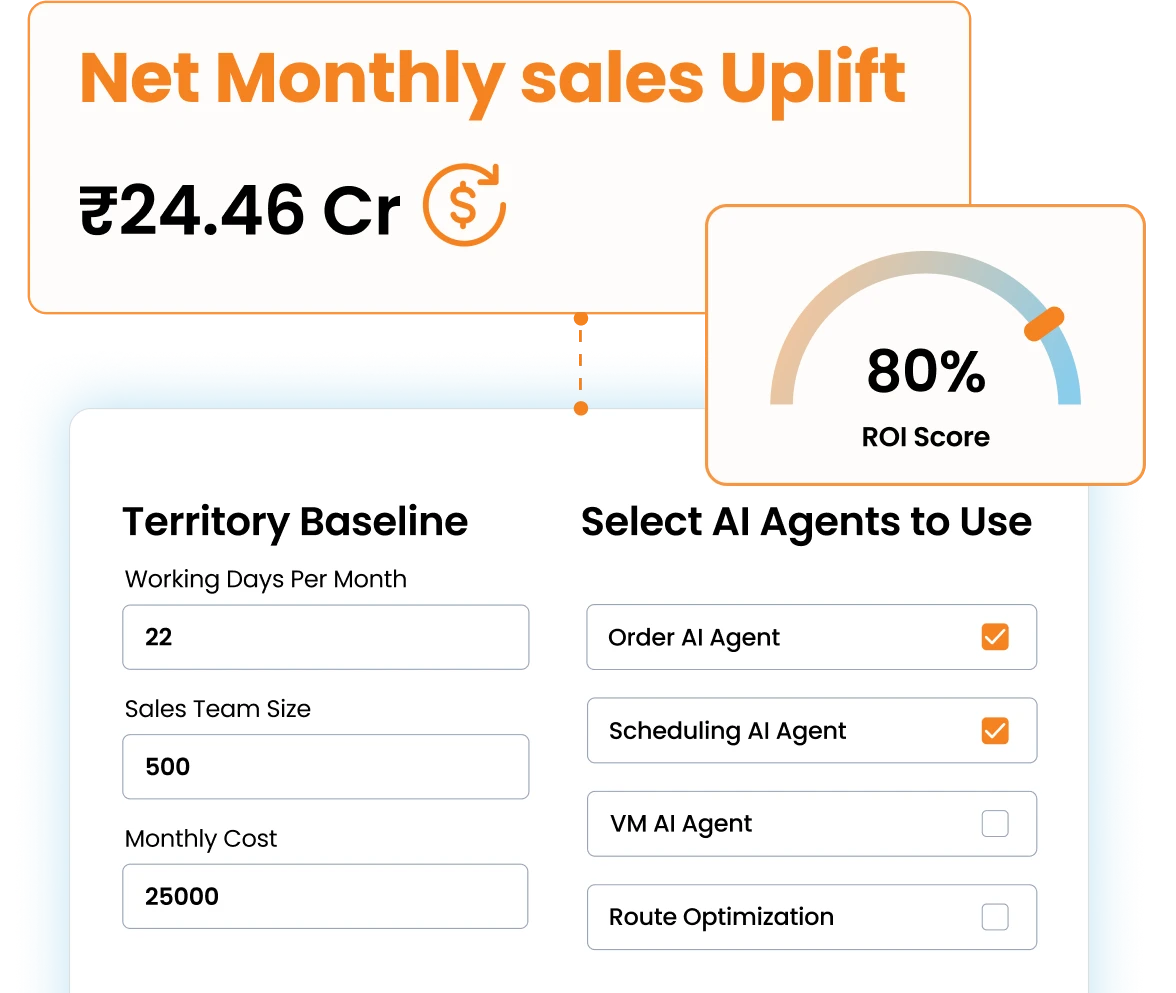Field Management Systems Guide You Must Read 2025

Field management systems have revolutionized how businesses coordinate their mobile workforce and streamline operations across diverse industries. These comprehensive digital solutions enable organizations to effectively manage field service operations, optimize resource allocation, and deliver exceptional customer experiences. Whether you’re running a small service business or managing enterprise-level field operations, understanding the transformative power of field management systems is crucial for staying competitive in today’s dynamic marketplace.
What is a Field Management System and Why Your Business Needs One
A field management system is a comprehensive digital platform that coordinates, tracks, and optimizes all activities related to field service operations. These intelligent software solutions serve as the central nervous system for businesses that deploy workers, technicians, or service personnel to customer locations or remote job sites.
Unlike traditional paper-based processes or basic scheduling tools, modern field management systems integrate multiple operational functions into a unified platform. They combine work order management, GPS tracking, real-time communication, inventory management, and performance analytics to create seamless workflows that boost productivity and enhance customer satisfaction.
Core Components of Modern Field Management Solutions
The most effective field management systems encompass several essential elements that work together to create operational excellence:
Intelligent Scheduling and Dispatch Management forms the backbone of efficient field operations. Advanced systems use AI-powered algorithms to automatically assign the right technician to the right job based on location, skills, availability, and customer requirements. This reduces travel time, minimizes delays, and ensures optimal resource utilization across territories.
Real-Time Mobile Applications empower field workers, customer information, service history, and technical documentation. These mobile-first solutions enable technicians to update job status, capture customer signatures, process payments, and communicate with dispatchers without returning to the office.
GPS Tracking and Route Optimization capabilities provide managers with complete visibility into field team locations and movements. Smart routing algorithms calculate the most efficient paths between job sites, reducing fuel costs and enabling teams to serve more customers per day. (See how BeatRoute’s Route Optimization Software ensures faster service delivery through optimal routing and territory planning.)
Key Benefits of Implementing Field Management Systems for Business Growth
The adoption of comprehensive field management systems delivers measurable improvements across multiple business metrics. Companies implementing these solutions consistently report significant enhancements in operational efficiency, cost management, and customer satisfaction.
Operational Efficiency and Productivity Gains
Field management systems eliminate time-consuming manual processes that traditionally burden both field workers and administrative staff. Digital work orders replace paper-based forms, automated scheduling reduces planning overhead, and real-time communication minimizes delays and confusion.
Research indicates that businesses using advanced field management platforms achieve up to 45% improvement in operational efficiency. This dramatic enhancement stems from optimized routing, reduced administrative tasks, streamlined communication, and better resource allocation across service territories.
Automated workflow management ensures that routine tasks like appointment confirmations, parts ordering, and follow-up communications happen without manual intervention. This frees up valuable time for strategic activities that directly impact business growth and customer relationships.
Cost Reduction and ROI Maximization
Implementing a robust field management system delivers substantial cost savings through multiple channels. Fuel cost reduction through optimized routing typically saves companies 20-30% on transportation expenses. Reduced administrative overhead from automated processes can cut operational costs by up to 40%.
Improved first-time fix rates significantly impact profitability by reducing repeat visits and associated travel costs. When technicians have access to complete customer history, proper tools, and technical documentation through mobile applications, they resolve issues more effectively on the initial visit.
Inventory management optimization prevents overstocking while ensuring parts availability when needed. Real-time inventory tracking helps maintain optimal stock levels, reduces carrying costs, and minimizes job delays due to parts shortages.
Enhanced Customer Satisfaction and Retention
Modern consumers expect transparent communication and reliable service delivery. Field management systems enable businesses to meet these expectations through automated customer notifications, real-time service updates, and accurate arrival time estimates.
Customer self-service portals allow clients to schedule appointments, track service progress, and access service history independently. This convenience factor significantly improves customer experience and reduces administrative burden on support staff.
Consistent service quality emerges from standardized workflows, comprehensive technician training records, and systematic quality assurance processes. When service delivery becomes predictable and reliable, customer satisfaction increases dramatically, leading to higher retention rates and positive referrals.
Essential Features Every Modern Field Management System Should Include
Selecting the right field management system requires understanding which features deliver the most value for your specific business needs. The most impactful solutions combine core functionality with advanced capabilities that scale with growing operations.Modern platforms like BeatRoute goal-driven AI go beyond basic field tracking, integrating AI-powered planning, real-time visibility, and execution tools into one unified solution.
Mobile-First Design and Offline Capabilities

Mobile optimization is non-negotiable for field management systems since field workers primarily interact with the platform through smartphones and tablets. The interface must be intuitive, responsive, and designed for use in various environmental conditions.
Offline functionality ensures continuous productivity even in areas with poor connectivity. Field workers should be able to access job information, update work orders, and capture data without internet access, with automatic synchronization when connectivity returns.
(See how BeatRoute’s Sales Force Automation Software delivers both mobile-first usability and offline access, ensuring field reps stay productive anywhere.)
Advanced Scheduling and Resource Allocation

AI-powered scheduling engines consider multiple factors when assigning jobs, including technician skills, location, workload, and customer preferences. This intelligent approach optimizes resource utilization while maintaining service quality standards.
Dynamic rescheduling capabilities help managers adapt to unexpected changes like emergency calls, traffic delays, or equipment failures. The system should automatically suggest optimal adjustments to minimize disruption to other scheduled appointments.
(See how BeatRoute’s Intelligent Visit planning improves scheduling accuracy with geo-tagging, smart routing, and sales territory mapping.)
Comprehensive Reporting and Analytics

Real-time dashboards provide managers with instant visibility into key performance indicators like job completion rates, customer satisfaction scores, technician productivity, and revenue metrics. Predictive analytics capabilities help identify trends and potential issues before they impact operations.
Customizable reporting tools enable businesses to track metrics that matter most to their specific industry and operational goals. Whether monitoring compliance requirements, analyzing cost trends, or measuring customer satisfaction, flexible reporting ensures data-driven decision making.
How Field Management Systems Drive Digital Transformation Across Industries
The versatility of modern field management systems enables their successful implementation across diverse industry verticals, each with unique requirements and operational challenges.
Service-Based Industries and Field Operations
HVAC, plumbing, and electrical contractors benefit from specialized features like equipment maintenance schedules, parts compatibility databases, and safety protocol compliance tracking. These industries require detailed technical documentation and regulatory compliance, which field management systems facilitate through digital forms and automated reporting.
Healthcare and home care services leverage field management systems to coordinate patient visits, manage medication schedules, and maintain HIPAA-compliant records. GPS tracking ensures patient safety through verified visit confirmations, while mobile applications enable real-time care plan updates.
Manufacturing and Industrial Applications
Equipment maintenance and inspection services use field management systems to schedule preventive maintenance, track asset performance, and manage complex work orders across multiple facilities. IoT integration enables predictive maintenance strategies that prevent costly equipment failures.
Construction and project management teams coordinate multiple trade professionals, track material deliveries, and monitor project progress through comprehensive field management platforms. These solutions ensure projects stay on schedule while maintaining safety and quality standards.
Retail and Distribution Networks
Field sales teams and merchandising personnel utilize field management systems to optimize store visit schedules, track promotional campaign execution, and gather competitive intelligence. Route optimization ensures maximum territory coverage while minimizing travel costs.
What Problems Do Field Management Systems Solve for Growing Businesses?
Understanding the specific challenges that field management systems address helps business owners recognize when implementation becomes necessary for continued growth and competitiveness.
Communication and Coordination Challenges
Information silos between field teams and office staff create delays, errors, and customer dissatisfaction. Traditional communication methods like phone calls and text messages lack the structure and documentation needed for efficient operations.
Field management systems establish centralized communication hubs where all stakeholders access the same real-time information. This eliminates miscommunication, reduces response times, and ensures everyone works from the most current data.
Scheduling and Resource Management Issues
Manual scheduling processes become increasingly complex as businesses grow, leading to double-bookings, inefficient routes, and poor resource utilization. Spreadsheet-based tracking lacks the sophistication needed for dynamic rescheduling and optimization.
Automated scheduling algorithms eliminate human error while optimizing assignments based on multiple criteria. Real-time updates ensure schedules remain accurate despite changing conditions, while resource tracking prevents overallocation or underutilization.
Customer Service and Satisfaction Problems
Lack of visibility into service progress frustrates customers and increases support call volume. Inconsistent service delivery damages brand reputation and reduces customer retention rates.
Field management systems provide transparent communication channels that keep customers informed throughout the service process. Standardized workflows ensure consistent service quality, while customer portals enable self-service capabilities that improve satisfaction.
How to Choose the Right Field Management System for Your Business Needs
Selecting an appropriate field management system requires careful evaluation of your current operations, growth objectives, and specific industry requirements.
Assessing Your Current Operational Challenges
Process mapping helps identify inefficiencies and bottlenecks in existing workflows. Document how information flows between departments, how schedules are created and managed, and where delays typically occur.
Cost analysis of current operations provides baseline metrics for measuring system ROI. Calculate expenses related to fuel, administrative time, repeat visits, and customer service issues that could be reduced through automation.
Evaluating System Features and Capabilities
Core functionality requirements should align with your immediate operational needs. Prioritize features like scheduling, mobile access, GPS tracking, and basic reporting before considering advanced capabilities.
Scalability considerations ensure the system can grow with your business. Evaluate user limits, data storage capacity, and integration capabilities that will support future expansion.
Integration requirements determine how the field management system will connect with existing business applications like accounting software, CRM platforms, and inventory management systems.
Implementation Planning and Change Management
Phased rollout strategies minimize disruption while allowing teams to adapt gradually to new processes. Start with pilot groups before expanding system access across the entire organization.
Training and support requirements vary significantly between systems. Evaluate vendor-provided training resources, ongoing support availability, and user community strength when making selection decisions.
Best Practices for Successful Field Management System Implementation
Implementing a field management system successfully requires careful planning, stakeholder buy-in, and systematic change management approaches.
Pre-Implementation Preparation
Stakeholder engagement from the beginning ensures smooth adoption and reduces resistance to change. Include field workers, dispatchers, managers, and customers in planning discussions to address concerns and gather input.
Data migration planning prevents information loss during the transition from legacy systems. Clean and organize existing customer data, service history, and operational records before importing into the new system.
Training and Adoption Strategies
Comprehensive training programs should cover all user groups with role-specific instruction. Field technicians need mobile app training, while managers require dashboard and reporting education.
Progressive feature introduction prevents overwhelming users with too much functionality at once. Start with basic features and gradually introduce advanced capabilities as teams become comfortable with the system.
Performance Monitoring and Optimization
Key performance indicator tracking measures system effectiveness and identifies areas for improvement. Monitor metrics like job completion rates, customer satisfaction scores, and cost reduction achievements.
Continuous process improvement leverages system data to identify optimization opportunities. Regular analysis of operational metrics reveals trends and patterns that inform strategic decisions.
What Are the Latest Trends in Field Management Technology?
The field management system landscape continues evolving rapidly, driven by advances in artificial intelligence, mobile technology, and data analytics.
Artificial Intelligence and Machine Learning Integration
Predictive analytics capabilities help businesses anticipate equipment failures, optimize maintenance schedules, and forecast resource requirements. AI-powered insights enable proactive decision-making that prevents problems before they impact operations.
Intelligent automation handles routine tasks like appointment scheduling, parts ordering, and follow-up communications without human intervention. This frees up staff time for higher-value activities while ensuring consistency in operational processes.
Advanced Mobile and Communication Technologies
Augmented reality integration enables remote technical support and enhanced training capabilities. Technicians can receive visual guidance from experts without requiring on-site visits, reducing resolution time and improving first-time fix rates.
Real-time communication platforms integrate messaging, video calls, and file sharing within the field management system. This eliminates the need for separate communication tools while maintaining comprehensive records of all interactions.
Data Analytics and Business Intelligence
Advanced reporting dashboards provide deeper insights into operational performance and customer behavior patterns. Customizable analytics help businesses identify trends, measure progress toward goals, and make data-driven strategic decisions.
Predictive modeling uses historical data to forecast demand patterns, optimize resource allocation, and identify potential operational challenges before they impact service delivery.
Frequently Asked Questions About Field Management Systems
What Security Features Should I Look for in a Field Management System?
End-to-end encryption, role-based permissions, multi-factor authentication, and single sign-on.
What’s the big advantage?
Transforms operations into efficient, data-driven models. Delivers lasting cost savings, growth, and customer satisfaction.
In which countries is BeatRoute’s is available?
BeatRoute operates in over 20 countries, including Nigeria, Indonesia, Malaysia, the Philippines, and Mexico, adapting to each market’s unique needs while delivering the same AI-driven precision worldwide
About the Author
-
Kanika Agrawal owns deep first-hand market experience ranging from global corporations to startups, where she has contributed to building and scaling solutions that drive measurable business impact. She possesses strong expertise in AI and focuses on translating its capabilities into real business value.
Use Goal-Driven AI to Achieve Retail Sales Uplift, Today!
Join enterprises in 20+ countries that trust BeatRoute, the globally dominant AI platform for sales force automation, field sales, DMS, and eB2B
Latest Insights & Articles
Here are the most impactful articles, platform updates, ebooks and reports for you.


